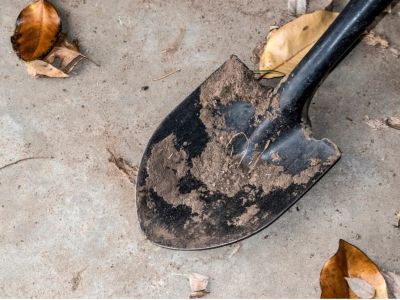How to Clean Garden Tools
Starting the gardening season off right requires a thorough check of your garden equipment. Ideally, tools should be cleaned and evaluated after each use but we all know that doesn’t always happen. Rust, broken parts, and dull blades are an inevitable part of using these helpful implements. Lay a large tarp out in an open area and bring everything out where you can see it. Wash all the gardening tools completely and allow them to air dry before proceeding with the next step. You’ll need the proper equipment to manage your garden tool collection. Keep rags, machine oil, small spare parts, and extension cords or battery chargers on hand to use as necessary. Once cleaned, every tool should be sharpened. There are special sharpening items available for the purpose or you can use an all-purpose file. Sharpen blades but also any digging implements. Shovel blades may be sharpened to increase the ease in which they plough through even hard pan clay. Sharpen at a 45-degree angle by running the file across the edge two or three times.
Ongoing Garden Tool Care
Frequent oiling will increase the life of your tools. Oil keeps moving parts working smoothly so they don’t catch or rub. Pruning equipment especially benefits from oiling. Take pruners apart occasionally and rub down all the parts, including screws and bolts, with machine oil. This will remove rust and minimize future mineral deposits. To remove difficult stains, use a fine grit steel wool to scrub the area clean. Wipe everything down with a clean, dry rag. Any tools that are used to cut plants, such as shears, saws, or pruners, should be wiped down with bleach before and after every use to help prevent the spread of diseases.
Cleaning Wood Handles On Gardening Tools
Many hand tools for the garden come with wooden handles, which need special care to prevent splitting and breaking. At least twice a season, sand them with medium grit sandpaper and then rub in linseed oil to create a protective barrier. Wood-handled tools need to be stored indoors and dried before storage. If a handle fails or breaks, replacements can usually be found in hardware or garden stores. Generally, it is simply a matter of removing the old screws and installing the new handle with fresh hardware.
Storing Garden Tools
Consistent garden tool care is more effective when the equipment is stored in favorable conditions. Garden tools should be stored indoors where possible — in a clean, dry environment. They should be stored upright or hanging where air can circulate freely. Invest in good waterproof covers for items that must be stored outdoors due to lack of storage, such as lawnmowers. Caring for garden tools can be a money- and time-saving chore when done on a biannual schedule.
